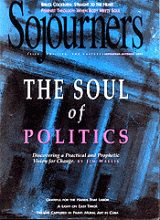Cormac McCarthy, a Southern Gothicist writing in the same vein as William Faulkner and Flannery OConnor, was a virtual unknown until the 1992 publication of All the Pretty Horses, the first installment of the proposed "Border Trilogy." At that point in his literary career, he abandoned the bizarre gothic elements of his previous works in favor of a more romantic tale; romantic in the sense that it is an adventurethe substance of which legends are made. The book earned critical acclaim, won the National Book Award and the National Book Critics Circle Award, and established McCarthy as a serious writer.
With the publication of the second volume of the trilogy, The Crossing, McCarthy once again weaves a story of epic proportions. Though the portrayal of Native American and some Mexican characters could be problematic for readers, McCarthys prose is a pleasure to read. He is indeed a master storyteller and a master at the use of language; furthermore, there is a greater truth to be realized in this story.
Like All the Pretty Horses, it is a "coming of age" story set in the 1940s about two young boys from the American Southwest who strike out across the Mexican border to discover adventure and themselves. The Crossing, however, is a much more sorrowful tale than its predecessor. A tale of "dark and light," it is the story of two brothers, Billy and Boyd Parham, from New Mexico. It is really Billys story though, for it is his journey that begins to "take upon itself the shape of a tale."
The first section of the book is in itself a satisfying story that could stand alone as a novella. It chronicles Billys efforts to return a trapped wolf to the Mexican mountains. The reader learns at once what an introspective person Billy is when he tells no one of his almost mystical experience observing a pack of wolves on a moonlit night.
Read the Full Article
